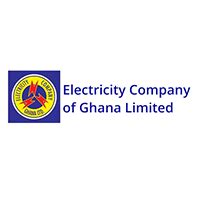The sun was setting over the bustling city of Accra, Ghana, as the Africa Sustainable Energy Centre (ASEC) raised its voice in a call to action. The message was clear: Ghana must prioritize sustainable energy to secure its economic future and pave the way for transformative change.
In a world where energy is the lifeblood of progress and development, Ghana finds itself at a crossroads. The country’s energy sector is grappling with mounting challenges – from financial burdens to power shortages – that threaten not only its stability but also its potential for growth.
“Despite initiatives like the Cash Waterfall Mechanism (CWM), systemic mismanagement has exacerbated financial burdens, strained relationships with Independent Power Producers (IPPs), and resulted in ongoing power rationing,” emphasized ASEC. The stakes are high, and the time for decisive action is now.
As dusk settled over Accra, Ghana’s energy ministry shed light on the sources that power the nation: hydroelectricity, thermal fuel derived from crude oil, natural gas, diesel, solar energy, and imports from La Cote D’Ivoire. Notably, Ghana also plays a role in exporting power to neighboring countries such as Togo, Benin, and Burkina Faso.
With an eye towards a brighter tomorrow, ASEC outlined key interventions that could steer Ghana away from crisis towards a sustainable energy future:
Addressing Gas Supply Challenges:
To bolster national capacity and ensure energy availability during disruptions in the West African Gas Pipeline (WAGP), ASEC stressed the completion of Train Two of the Atuabo Gas Plant and the construction of crucial infrastructure like LNG facilities and gas pipelines. Transparency and accountability were deemed essential for success.
Privatizing ECG’s Commercial Aspect:
ASEC reiterated its call to privatize the commercial arm of the Electricity Company of Ghana (ECG), citing potential benefits such as revenue enhancement and operational efficiency. Drawing on past publications and guidance from entities like MiDA would be key to avoiding past pitfalls.
Transparency in Levy Utilization:
Proper allocation of funds generated by the Energy Sector Recovery Levy (ESLA) could foster trust and attract investments critical for sector growth. Detailed reports on fund utilization would be instrumental in this regard.
Implementing Cost-Reflective Tariffs:
Aligning electricity tariffs with operational costs can pave the way for financial stability within Ghana’s energy market. Deregulation efforts coupled with transparent agreements with IPPs are seen as vital steps towards fostering competitiveness.
As night descended upon Accra, whispers of change reverberated through its streets. A vision emerged – one where low-carbon technologies like solar and wind power take center stage alongside advanced nuclear reactors offering reliability amidst decarbonization efforts.
The journey towards a sustainable energy future demanded more than just ambition; it required concrete actions like replacing outdated ECG meters nationwide to curb revenue losses effectively while embracing modern technology solutions like prepaid smart meters.
At its core,African Sustainable Energy Centre (ASEC) stood as a beacon of hope – pioneering sustainable solutions across Africa.Together,Ghana stood poised at a pivotal moment where decisions made today would shape generations to come.Every kilowatt-hour consumed held within it not just power but promise,a promiseof transformation,a promiseof resilience,and ultimately,a promiseof progress.Sign upAfrica electricityElectricity Company

